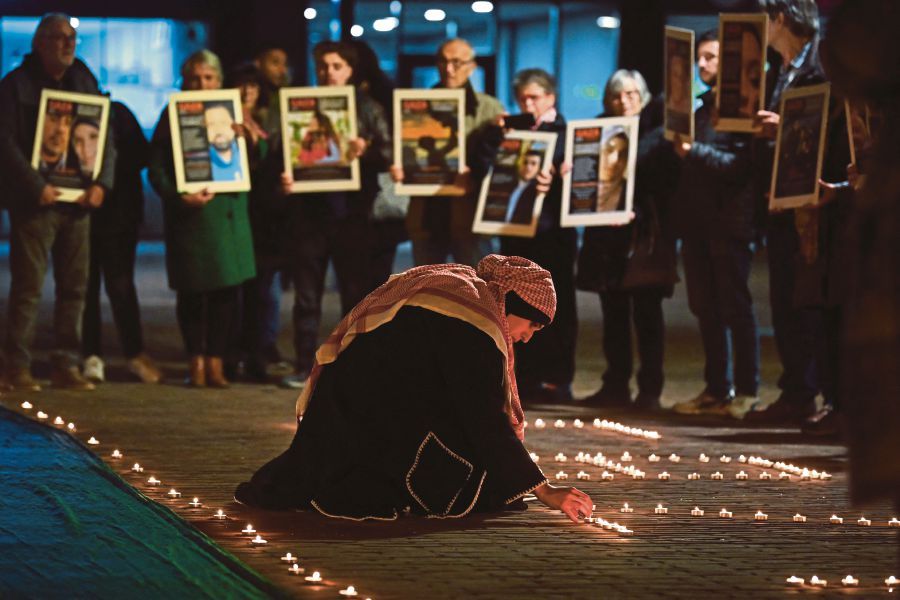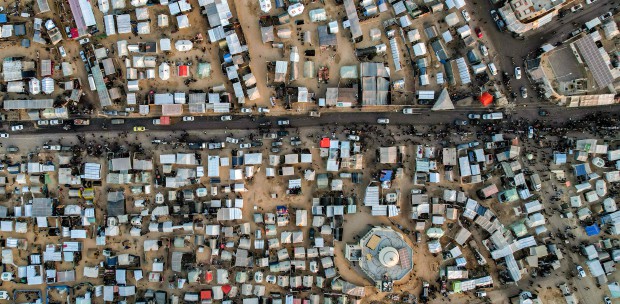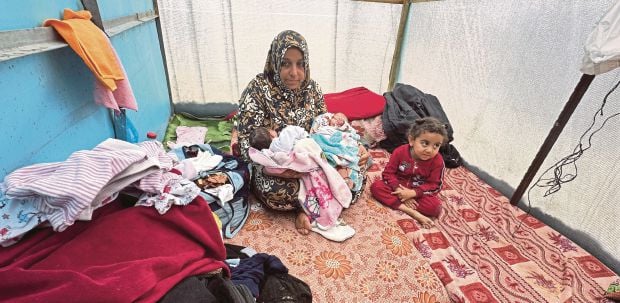JIAN Omar, a Berlin lawmaker of Kurdish-Syrian background, feels unprotected by police after suffering hate-filled flyers mixed with glass and faeces, a broken window and a hammer-wielding assailant since the deadly Oct 7 Hamas attack in Israel.
The incidents at Omar's constituency office form part of increased hostility to Muslims in Europe fanned at times by politicians since the Hamas assault, more than 30 community leaders and advocates said, adding that incidents were under-reported because of low trust in police.
"I feel really alone and if somebody with the status of an elected official can't be protected then how must others feel?" said Omar. He said police told him they could not offer extra security at his premises.
"Imagine if a white German politician was attacked by a migrant or a refugee," he said, suggesting security forces would do more in such cases.
Hate crime has risen dramatically in Europe since the Oct 7 assault and the subsequent Israeli invasion of Gaza with steep rises also seen in France and Germany.
Zara Mohammed, secretary general of the Muslim Council of Britain, said government language, such as calling pro-Palestinian protests "hate marches", had made the fight against anti-semitism and for the rights of Muslims or Palestinians a zero-sum game in many people's minds.
European Muslims' sense of vulnerability was further heightened with the electoral victory last week of Dutch far-right populist Geert Wilders, who previously called for mosques and the Quran to be banned in the Netherlands.
In the United States, there has been deadly anti-Palestinian violence since Oct 7.
At the Ibn Ben Badis Mosque in Nanterre, Paris, elderly worshippers fear attending the dawn prayer in the dark, two worshippers there said, after a written arson threat against the mosque late last month, apparently from a far-right sympathiser.
Rachid Abdouni, the mosque president, said a request for extra police protection was not met.
Attempted arson, verbal abuse, vandalism and a pig's head left at a mosque site were among more than 700 reports of Islamophobic incidents in Britain the month after the Hamas attack, campaign group Tell Mama said, a sevenfold increase over the previous month.
The French Muslim Council received 42 letters containing threats or insults between Oct 7 and Nov 1, but has not reported any of them, said council vice-president Abdallah Zekri.
"The vast majority of Muslims do not file a complaint when they are victims of such acts. They don't want to spend two hours or more in a police station to file a complaint that in the end is often going to be dismissed," Zekri said.
In Germany, attacks on mosques are sometimes registered simply as damage to property, said Rima Hanano of Claim, a non-government organisation.
"People affected by racism like Muslims and those perceived to be Muslim often fear to go to authorities because they are afraid of secondary victimisation, that they will not be believed or made out to be the perpetrators," she said.
Western Europe's colonial and religious past has also cast Islam as regressive and foreign, contributing to entrenched prejudice among parts of the population and in institutions, said Reza Zia-Ebrahimi, historian at Kings College London and author of Antisemitism and Islamophobia: an entangled history.
Attacks by Islamists in Europe or abroad often bring repercussions for the general Muslim population.
After mosques were defaced and the spread of anti-Muslim commentary by pundits on TV, French President Emmanuel Macron said last week that "to protect French people of Jewish faith should not be to pillory French people of Muslim faith".
However, Zia-Ebrahimi said, the decision by France's Interior Ministry to ban pro-Palestinian protests on the grounds they were a risk to public order fomented a view that Arabs are aggressors and that supporters of Palestinians are motivated by antisemitism.
Amnesty International called the blanket ban disproportionate. Aiman Mazyek of the German Muslim Council said a federal government commissioner on Islamophobia was needed to complement existing commissioners for antisemitism and anti-Roma racism.
"The fact that we have so many commissioners in Germany and no commissioner for Islam in particular is discrimination in itself," he said.
Germany's newly appointed commissioner on racism, Reem Alabali-Radovan, acknowledged a need for better monitoring after the interior ministry survey showed one in two Germans holds Islamophobic views.
The writers are from the Reuters news agency





